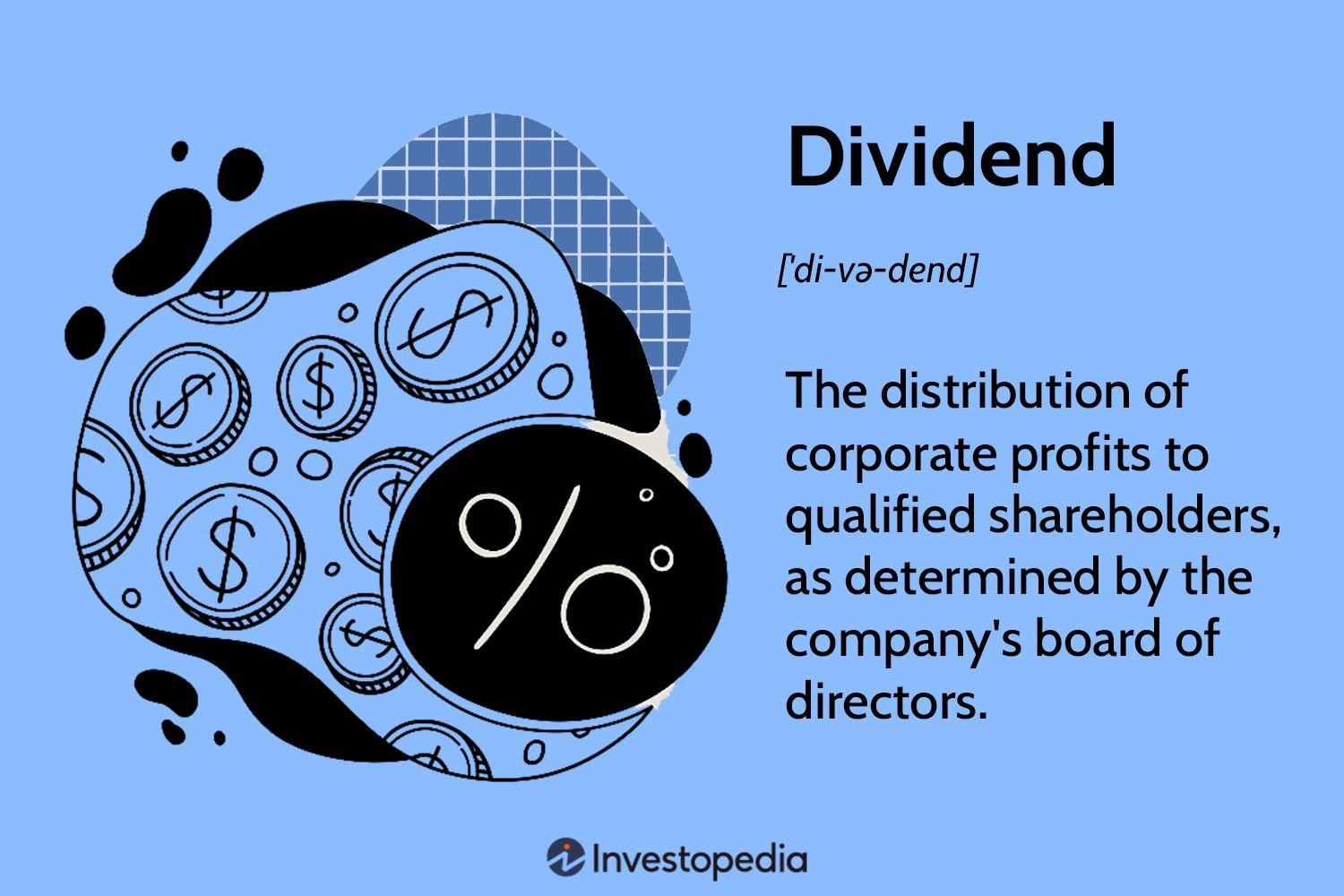Are you wondering how to financially survive a gig economy? The answer lies in adapting to the ever-changing landscape of work and embracing the flexibility that comes with it. In a gig economy, where temporary and freelance jobs are becoming increasingly prevalent, it is important to navigate your finances wisely and build a sustainable income. Whether you are a freelancer, consultant, or part-time worker, this article will provide you with practical tips and strategies on how to financially survive a gig economy, ensuring stability and peace of mind in an unpredictable world. So let’s dive in and discover the secrets to thriving in this new era of work.
How to Financially Survive a Gig Economy
Introduction
In today’s rapidly evolving job market, the gig economy has emerged as a prominent force, offering individuals the opportunity to work independently and on their own terms. With the rise of technology and a changing work landscape, more and more people are embracing gig work to earn a living.
While the gig economy provides flexibility and freedom, it also brings financial challenges. As a gig worker, you are responsible for managing your finances, saving for retirement, and dealing with irregular income streams. In this comprehensive guide, we will explore strategies, tips, and tools to help you financially survive and thrive in the gig economy.
1. Understanding the Gig Economy
Before diving into financial survival tips, it’s important to grasp the concept of the gig economy and how it operates. Here are key points to consider:
- The gig economy refers to a labor market characterized by short-term contracts or freelance work instead of permanent employment.
- It includes various sectors such as online platforms, ride-sharing services, delivery services, and freelancing.
- Gig workers are considered independent contractors, which means they are responsible for their own taxes and benefits.
- Flexibility, autonomy, and the ability to choose your hours are some of the significant advantages of the gig economy.
2. Budgeting and Financial Planning
Managing your finances effectively is crucial for surviving and thriving in the gig economy. Here’s how you can create a budget and plan your finances:
2.1. Track Your Income and Expenses
- Keep a record of all your income sources and track your expenses carefully.
- Use budgeting apps or spreadsheets to categorize and monitor your income and spending.
- Regularly review your financial records to identify patterns and areas where you can reduce expenses.
2.2. Create a Realistic Budget
- Based on your income and expenses, create a budget that addresses your financial goals and priorities.
- Allocate funds for essential expenses like rent, utilities, and groceries, as well as for savings and future planning.
- Consider setting aside an emergency fund to cushion yourself during lean periods or unexpected expenses.
2.3. Diversify Your Income Streams
- Relying on a single gig can be risky, as work availability can fluctuate. Explore other potential income streams to create financial stability.
- Consider offering services on multiple gig platforms or exploring part-time work opportunities.
- Utilize your skills and interests to find new gigs or freelance projects.
3. Tax Obligations
As a gig worker, you are responsible for managing your own taxes. Understanding your tax obligations is crucial to avoid penalties and ensure compliance. Here’s what you need to consider:
3.1. Understand Your Tax Filing Status
- Learn about the tax rules and regulations that apply to your specific gig work.
- Determine whether you should file as a self-employed individual or if you qualify for any special tax provisions.
- Consult with a tax professional to ensure you are accurately filing your taxes and taking advantage of any deductions or credits available to you.
3.2. Keep Track of Business Expenses
- Maintain detailed records of business-related expenses, such as transportation costs, equipment purchases, or home office expenses.
- These expenses may be tax-deductible, reducing your overall tax liability.
- Use expense tracking tools or apps to simplify the process and ensure you don’t miss any deductions.
3.3. Set Aside Money for Taxes
- Since gig workers do not have taxes withheld from their income, it’s essential to set aside a portion of your earnings to cover tax liabilities.
- Create a separate savings account specifically for taxes and regularly contribute to it from each paycheck.
- Consult with a tax professional to determine the appropriate percentage to set aside based on your income level and tax obligations.
4. Savings and Retirement Planning
Saving for both short-term goals and retirement is imperative for gig workers. Here’s how you can effectively save and plan for your future:
4.1. Build an Emergency Fund
- As a gig worker, having a robust emergency fund is crucial since income can be unpredictable.
- Strive to save at least three to six months’ worth of living expenses in an easily accessible and low-risk savings account.
- Automate your savings by setting up regular transfers from your gig income to your emergency fund.
4.2. Set Up a Retirement Plan
- Although retirement may seem distant, it’s important to start planning and saving early to secure your financial future.
- Explore retirement plan options such as a Simplified Employee Pension Plan (SEP IRA) or a Solo 401(k) if you are self-employed.
- Consult with a financial advisor who can guide you on the best retirement plan based on your income and goals.
4.3. Prioritize Debt Repayment
- If you have existing debts, prioritize repaying them to avoid high-interest charges.
- Create a debt payoff plan and allocate a portion of your income towards debt repayment.
- Consider consolidating high-interest debts or exploring debt repayment strategies such as the snowball or avalanche method.
5. Insurance and Benefits
Gig workers often lack the traditional benefits provided by employers. However, it’s crucial to protect yourself and mitigate potential risks. Here are some essential insurance and benefits considerations:
5.1. Health Insurance Options
- Explore health insurance options available to gig workers, such as purchasing an individual plan through the marketplace or joining a spouse’s plan.
- Consider joining a professional association or union that offers group health insurance coverage.
- Research health sharing ministries or short-term health insurance plans as potential alternatives.
5.2. Disability and Liability Insurance
- Investigate disability insurance options to protect yourself in the event of injury or illness that prevents you from working.
- Consider liability insurance to protect against potential lawsuits or claims related to your gig work.
- Consult with an insurance professional to determine the appropriate coverage for your specific situation.
5.3. Retirement Benefits
- Since gig workers do not have access to employer-sponsored retirement plans, it’s crucial to explore individual retirement options.
- Research and compare different Individual Retirement Account (IRA) options, such as Traditional or Roth IRAs.
- Consult with a financial advisor to determine the right retirement account based on your income and tax considerations.
6. Continuous Skill Development
To thrive in the gig economy, it’s important to continuously develop your skills and stay relevant in your chosen field. Here’s how you can invest in your professional growth:
6.1. Identify Skill Gaps
- Regularly assess your skills and identify areas where you can improve or learn new skills.
- Research industry trends and demands to understand which skills are in high demand.
- Consider taking online courses, attending workshops, or joining professional communities to enhance your expertise.
6.2. Network and Collaborate
- Networking is crucial for gig workers to expand their professional contacts and discover new opportunities.
- Attend industry events, join online forums or communities, and connect with other professionals in your field.
- Collaborate with fellow gig workers on projects or initiatives to gain insights and broaden your skill set.
6.3. Stay Informed and Adapt
- Keep up with industry news and advancements to remain knowledgeable and adaptable in the ever-changing gig economy.
- Subscribe to relevant newsletters, follow industry influencers on social media, and regularly read industry publications.
- Be open to embracing new technologies or platforms that can enhance your gig work.
Surviving and thriving in the gig economy requires careful financial planning, discipline, and a proactive mindset. By understanding the gig economy, creating a budget, managing taxes, saving for the future, protecting yourself with insurance, and continuously developing your skills, you can navigate the challenges and reap the rewards of gig work. Take control of your financial well-being and embark on a successful journey in the gig economy.
Although the gig economy offers numerous opportunities, it’s essential to stay informed, adapt to changes, and continuously refine your strategies to ensure long-term financial stability and success. Remember, financial survival in the gig economy is possible with thoughtful planning, smart investments, and a resilient attitude.
Gig Economy Survival Guide: INCREASE Tips And Financing As A Gig Worker
Frequently Asked Questions
Frequently Asked Questions (FAQs)
How can I financially survive in a gig economy?
Surviving financially in a gig economy requires careful planning, adaptability, and effective money management. Here are some strategies to help you financially thrive:
What are some ways to create a steady income in a gig economy?
In a gig economy, it’s essential to diversify your income sources. Consider taking on multiple gigs or freelancing opportunities to create a more stable cash flow. Additionally, you can explore passive income streams, such as investing in stocks or rental properties.
How should I handle irregular income in a gig economy?
To manage irregular income, it’s crucial to create a budget based on your average earnings. Prioritize essential expenses and create an emergency fund to cover any unexpected financial setbacks. Tracking your income and expenses diligently can help you anticipate and manage fluctuations in cash flow.
What strategies can I use to save money in a gig economy?
To save money effectively, it’s important to develop smart spending habits. Cut down on unnecessary expenses, negotiate bills, and seek out discounts or deals whenever possible. Automating your savings and setting financial goals can also help you stay motivated and disciplined in your saving endeavors.
Is it advisable to have a side job while working in the gig economy?
Holding a side job can offer additional financial security and stability in a gig economy. It provides a steady income stream while allowing you to pursue your gig work. However, make sure to carefully manage your time and prioritize gigs that align with your long-term goals.
How can I manage taxes as a gig economy worker?
When working in the gig economy, it’s essential to keep track of your income and expenses for tax purposes. Consider consulting a tax professional or using tax software to ensure you understand and fulfill your tax obligations. Set aside a portion of your earnings to cover your tax liabilities.
What are some tips for negotiating rates as a gig economy worker?
When negotiating rates, research the market to understand the average rates for your services. Highlight your skills, experience, and the value you bring to clients. Be confident in discussing rates, but also be open to negotiation. Building solid relationships with clients can lead to recurring work and potentially higher rates over time.
How can I protect myself financially in the gig economy?
To protect yourself financially, it’s important to have appropriate insurance coverage, such as liability insurance or healthcare coverage. Additionally, regularly reviewing and updating contracts to ensure fair payment terms and solid legal protection is crucial. Building an emergency fund and continuously improving your skills can also provide a safety net in challenging times.
Final Thoughts
In conclusion, navigating the gig economy requires careful financial planning and proactive measures. To financially survive in this dynamic work environment, it is crucial to diversify income sources and create a safety net through emergency funds and insurance. Developing a strong professional network, continuously upskilling, and embracing technology can help capitalize on gig opportunities. Additionally, maintaining a budget, tracking expenses, and prioritizing saving are essential for stability in the gig economy. By implementing these strategies, individuals can secure their financial well-being and thrive in the ever-changing gig landscape. So, when it comes to how to financially survive a gig economy, these practical steps are the key to success.



